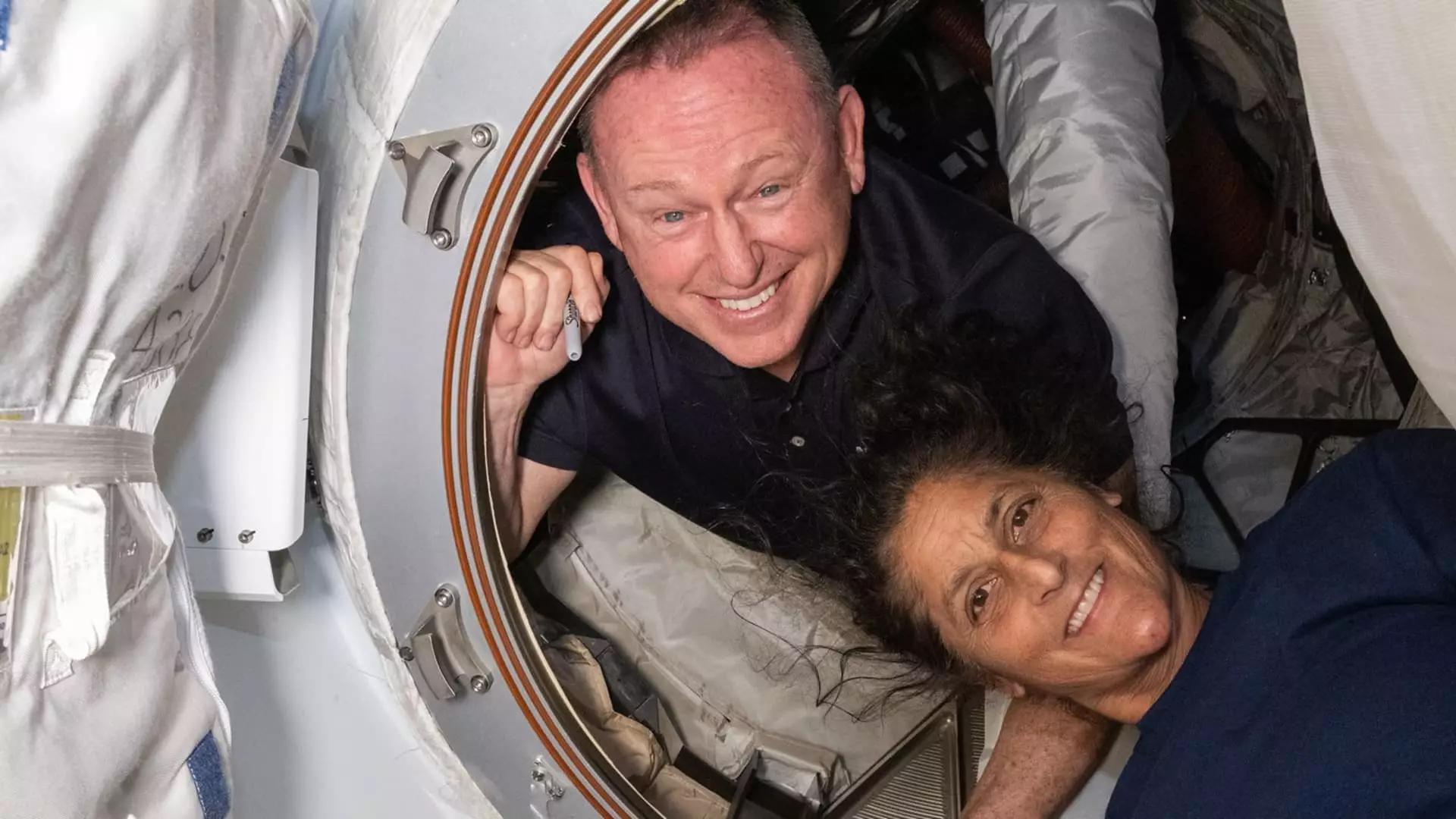Boeing, a historic titan of aerospace, has found itself in a quagmire following the prolonged absence of its astronauts from the International Space Station (ISS). Initially, two seasoned astronauts, Butch Wilmore and Suni Williams, embarked on what was supposed to be a brief nine-day test mission aboard the Boeing Starliner capsule, nicknamed “Calypso.” Their journey unexpectedly transformed into a nine-month saga of uncertainty. This shift not only highlights the technical pitfalls Boeing faces with their Starliner but also forces us to confront the broader implications of relying on two private entities for our national space program.
The return of Wilmore and Williams is now intertwined with the delicate dance of political forces and public perception, which are amplifying the issues at play. The original test was intended to validate Boeing’s claims of technological superiority, but instead, it has resulted in a disastrous postponement that could tarnish the reputation of both the company and the capacity for human spaceflight.
Political Ramifications: A Space Race Revival?
As Wilmore and Williams awaited their return, the political landscape morphed. The administration of former President Donald Trump, characterized by its pushy business-centric approach, explicitly put pressure on NASA for expedited launches. The narrative that emerged suggested that the two astronauts were being “stranded,” a sensational claim that lacked substantiation but nevertheless resonated with a public eager for dramatic headlines. The current Biden administration faces a similar challenge; it must reconcile the expectations of stakeholders eager for space exploration without succumbing to the shortcuts associated with a politically charged atmosphere.
Moreover, the Boeing dilemma speaks to a fractured space race—a modern realization that both NASA and private enterprises like SpaceX must navigate a precarious balance. The desire for competition among contractors and the aspiration for groundbreaking innovation hold untold potential, yet recent history has shown that it may also spark backlashes that complicate effective project execution.
The Dark Underbelly of Corporate Spaceflight
Boeing’s financial struggles, with over $2 billion in losses attributed to the Starliner venture, expose a deeper issue within corporate America. The space industry is often heralded as the next frontier for technological supremacy, yet such lofty goals overshadow the need for accountability and transparency. How can we trust Boeing to execute future projects when they are still grappling with their failures on this one? The company’s struggles invite scrutiny into its long-term viability as a key player—should we still place our faith in a firm unable to bring about reliable technology?
On the other hand, SpaceX, led by Elon Musk, is flying high on seemingly seamless operations, raising considerable public support. As the private sector races ahead, Boeing’s stagnation could inadvertently embolden a monopoly situation, constricting innovation in what should be a collaborative space exploration paradigm.
Human Elements and Emotional Journey
Through this tumultuous chapter, the human experience often gets eclipsed by the technical and political noise. Both Wilmore and Williams have navigated not just the challenges of extended containment in an unforgiving environment, but also the emotional burden of waiting. Williams, in particular, articulated her connection to her family and pets; this individual human experience reveals our collective vulnerability in a venture that should prioritize human life amidst grand ambitions.
The ridicule surrounding their so-called “abandonment” on the ISS undercut the professionalism that astronauts like Wilmore and Williams uphold. The narrative around their relationship with Boeing and NASA has overshadowed their contributions aboard the station, including crucial scientific work. This reduction of their experiences to mere political fodder diminishes the intrinsic worth of their roles as pioneers in today’s space age.
Looking Ahead: A Call for Accountability
As the clock ticks down to the return of Wilmore and Williams—a long-awaited “splashdown”—it beckons a moment of reflection. What have we learned from this experience? Will we demand accountability from contractors like Boeing? Will we press for a more transparent approach that puts safety first and seeks to eliminate the political grandstanding that threatens to overshadow the essence of space exploration?
As center-wing liberals, we must advocate for a balanced approach to space exploration that champions innovation while holding corporate giants accountable. The future of human space traversal demands a comprehensive plan that prioritizes both effective partnerships and the emotional journey of those brave enough to seek the stars.


Leave a Reply